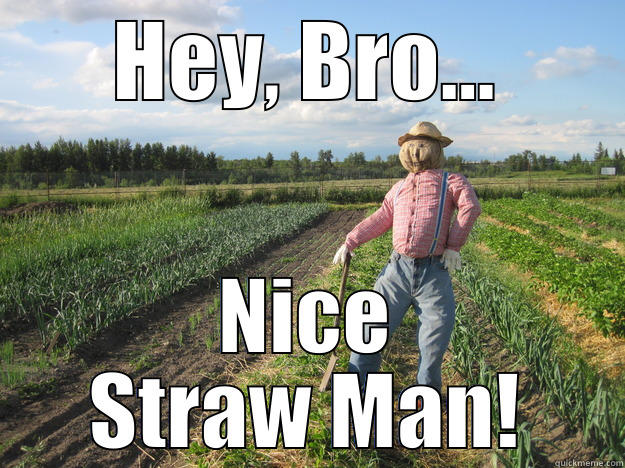Strawman Logical Fallacy

Contents
In good old medieval times fighters were training to fight stramen first, because those couldn’t fight back. Now strawman is a type of incorrect [rethoric in the debate](https://logicalfallacy.org/.
There are Strawman Argument detailed description and examples available, but to put it short:
1 Definition
The strawman fallacy is a rhetorical technique in which an opponent’s argument is misrepresented to make it easier to attack. It is used in various contexts like politics, media, and everyday conversations, potentially misleading the audience and manipulating public opinion.
2 Examples of strawman arguments
- Political debates: A candidate may misrepresent an opponent’s stance on healthcare reform to attack it easily.
- Media and journalism: A news outlet might exaggerate a scientist’s position on a theory to argue against it, reinforcing their own biases.
- Everyday conversations: An individual may misconstrue a friend’s environmental views to attack an easier target.
3 To avoid the strawman fallacy
One should:
- Seek clarity and understanding of differing opinions through open dialogue.
- Engage respectfully in discourse with those holding different views.
- Practice critical thinking to examine arguments for logical consistency, validity, and soundness.
- Fact-check and research to ensure that you’re addressing the actual argument rather than a distorted version.
4 Examples of strawman arguments in various contexts:
- Climate change debate: A party may be accused of being against economic growth when advocating for balanced environmental and economic solutions.
- Gun control discussions: One party’s suggestion to improve background checks might be distorted to claim they want to ban all guns.
- Immigration policy: A party’s proposal for vetting immigrants might be misrepresented as wanting to close borders entirely.
An Australian political debate example:
- Indigenous voice to Parliament: A supporter’s proposal for an advisory body was distorted to claim they want sovereignty over Australian territory, which was not their original argument.
- In conclusion, the strawman fallacy misrepresents arguments and hinders honest debates. To avoid it, we must seek clarity, engage respectfully, apply critical thinking, and fact-check our information.




